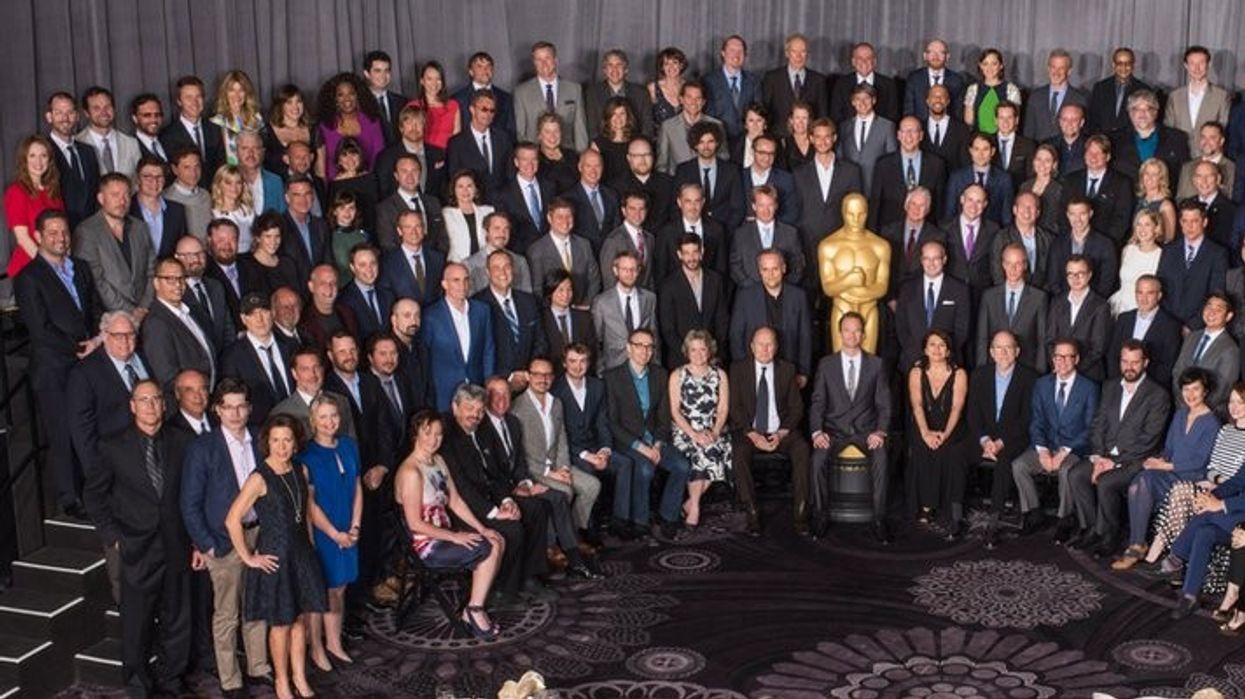Here are Some Reasons Behind the Academy's Hundreds of New 'Diverse' Invitations
What does this mean for diversity in Hollywood, and what are some possible reasons behind the move?

Following months of controversy over a lack of diversity within its ranks (and nominations for the Oscars), on Wednesday, the Academy of Motion Picture Arts & Sciences announced plans to double the number of female and minority members by 2020, inviting 683 new members to join the prestigious institution.
According to the AP, the invitees are "46 percent female, 41 percent minority and represent 59 countries." Assuming universal acceptance by those invited, that would render the academy's membership 11 percent "non-white" (a 3 percent increase) and 27 percent female, a 2 percent increase.
Reactions from the invitees have been mixed, as this screencap of Hannah Fidell's Twitter page shows (6 Years writer/director Fidell was named one of Filmmaker Magazine's 25 New Faces of Independent Film in 2012):
The reasons behind this deluge of inclusiveness no doubt vary from the genuinely well-intentioned to the cynical. (This report from the Washington Post quotes director Rod Lurie as saying that some of his fellow members told him they didn't even watch their screeners of Straight Outta Compton, and that the one who did stopped the film halfway through, claiming it was "too loud").
Though the roots of yesterday's decision lie in the distant past, the current controversy over diversity within the ranks of the academy can arguably be dated to 2015, when the hashtag #OscarsSoWhite was created by activist April Reign in response to the perceived snubbing of Selma director Ava Duvernay and star David Oyelowo. The hashtag went viral, and this year's Oscars were among the most controversial in recent history, featuring protests and a monologue by host Chris Rock that openly addressed the issue.
Among the new invitees to the academy are actors Idris Elba, Chadwick Boseman, Eva Mendes, America Ferrera and Anika Noni Rose. Behind the camera, Chinese DP Zhao Fei (who lensed Sweet and Lowdown and Small Time Crooksfor Woody Allen), Japanese production designer Yohei Taneda (who has worked with Quentin Tarantino on the first Kill Bill, as well asThe Hateful Eight) and RZA (who scored Tarantino's Django Unchained) were among those invited.
But the issue of Hollywood inclusiveness goes deeper than just production positions, according to a February study from USC-Annenberg. "A finding from our other studies regarding women in film is true of executive ranks as well. When power or influence increases, the percentage of females decreases,” Katherine Pieper, one of the study's authors, told Variety.
"When power or influence increases, the percentage of females decreases."
A similar study from UCLA also highlighted the diversity issue, shining a light on one possible reason for yesterday's move, finding that TV shows and movies whose casts most accurately mirrored the demographics of the US tended to be the most successful.
According to Dr. Darnell Hunt, chairman of the Ralph J. Bunche Center for African American Studies at UCLA: "...the industry’s homogeneous corps of decision makers made relatively few of these types of diverse projects, potentially leaving billions in revenue on the table." It can be easy to forget that the movie business is just that— a business— because no other business transmutes reality into magic on a daily basis. And, though businesses have to make money, they are also paradoxically slow to react to change (a truism, admittedly, of institutions in general, most of whom adopt an "if it ain't broke" attitude, even when things are very broke indeed).
Yesterday's gesture by the Academy represents a sea-change of sorts. Whatever the motivations behind it— from conversion experiences, to desire for good PR, or even just a cold look at the balance sheets— only time will tell if the effort has any significant impact on the endemic issue of race and gender inequality in Hollywood.
Source: AP Big Story












